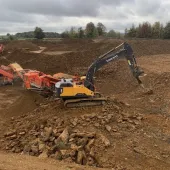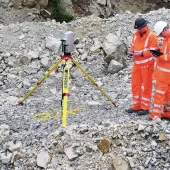MPA examines ‘ecosystem services’ approach to restoration

New approach could move partnership with nature to new level and influence local decision-making
FROM fresh air and water to food, nature works overtime to provide life’s essentials, and there is a growing belief that this should be recognized and rewarded accordingly. According to the Mineral Products Association (MPA), what are now being termed ‘ecosystems services’ look set to be of increasing significance for mineral products operators in the years ahead.
The ecosystem services approach is already an emerging trend in policy, academia and land management, as evidenced by its inclusion in the National Planning Policy Framework, Natural Environmental White Paper and UK Sustainability Development Strategy.
DEFRA, along with governments across the world, is starting to think differently about how all these ‘ecosystems services’ should be valued and communicated. What would it cost society if nature did not perform such vital services? The thinking is that if these services are valued more greatly, then they are also likely to be protected more effectively.
The MPA says it recognizes the benefit to the industry of better understanding its relationship with ecosystem services, which is why, in 2013, a project was undertaken by Dr Helen King of Cranfield University on behalf of Association and the ‘Nature After Minerals’ (NAM) initiative, funded by the Natural Environment Research Council (NERC), to improve the industry’s consideration and appreciation of ecosystem services.
David Payne, the MPA’s senior planning advisor, said: ‘We recognized that the concept of ‘ecosystem services’ has gained currency and use, notably among local authority planners.
‘Dr King’s study has helped provide a better understanding of which services are most relevant to the industry in terms of opportunity and threat. Our job is to translate the scientific concept into meaningful language for our members – to help them understand what it means and demonstrate how they are contributing to delivering ecosystem services every day.’
The outputs of Dr King’s internship with MPA were consolidated into an 80-page report for minerals companies, minerals planning authorities, NGOs and policymakers, which outlines and provides practical guidance on how to introduce an ecosystem services into quarry restoration.
Findings included the types of ecosystem services that restored quarries can (potentially) generate, associated public benefits, and ways of valuing these. Business opportunities and threats were considered in relation to ecosystem service trends.
The MPA says the industry’s response to ecosystems services is an important one given that it is now widely recognized for its quarry restoration work. The evolution of the new approach could move the partnership with nature on to a new level and influence local decision-making.









